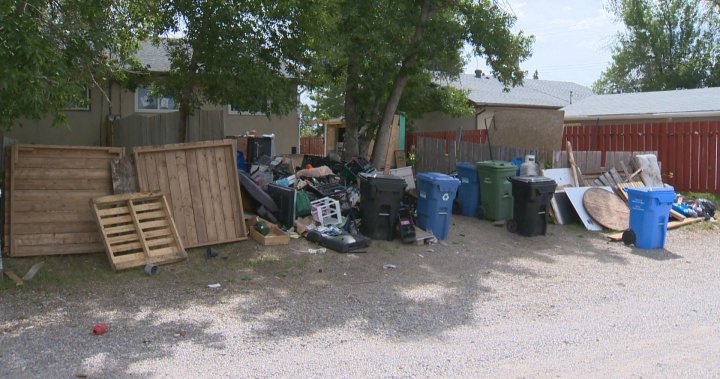Residents of a northeast Calgary neighborhood are reaching their breaking point as a notorious property continues to disrupt community peace despite years of complaints to authorities. The persistent issues at the Martindale residence have sparked renewed concerns about the effectiveness of the city’s problem property task force and its ability to address such longstanding disturbances.
“Every weekend there’s yelling, fighting and police,” explains Samantha Thompson, who has lived across from the problematic home for over three years. “My children can’t play outside without me worrying about what they might see or hear coming from that house.”
The property, located on Martinwood Road N.E., has generated more than 30 calls to police in the past year alone, according to community records. Neighbors report witnessing suspected drug activity, frequent late-night disturbances, and concerning behavior that has left many feeling unsafe in their own homes.
Calgary Police Service confirms they’re well-acquainted with the address. “We understand community frustration regarding this location,” said Inspector Darren Leggatt of the CPS Community Support Unit. “Properties that generate repeated calls for service remain a priority for our team, and we’re working closely with the city’s task force to address this situation.”
The city established its Residential Problem Property Team in 2018, designed to coordinate responses between police, bylaw services, and other agencies when dealing with properties generating excessive complaints. While the program has successfully addressed numerous problem properties throughout Calgary, critics argue cases like the Martindale residence expose gaps in the system.
Ward 5 Councillor Raj Dhaliwal acknowledged resident concerns during last week’s city council meeting. “We recognize the immense stress these situations place on communities. The task force is currently reviewing its procedures to better address properties that continue to generate complaints despite intervention.”
According to city officials, addressing problem properties often involves complex legal and procedural challenges. The process typically begins with warnings and fines, potentially escalating to court orders or, in extreme cases, seeking authority to demolish structures. However, these processes can take months or even years to complete.
“It’s a balance between respecting property rights and ensuring community safety,” explains Elana Morgan, director of Calgary Community Standards. “We’ve successfully resolved over 200 problem property cases since the task force began, but some situations prove particularly challenging due to ownership issues, tenant rights, or mental health and addiction factors.”
For Martindale residents like Thompson, however, patience is wearing thin. “We’ve been calling, reporting, and following all the proper channels for years now,” she says. “Meanwhile, our property values are dropping, and families are considering moving away. Something needs to change.”
The Martindale case highlights broader questions about urban property management and community rights that extend beyond Calgary. Across Canadian cities, similar task forces face comparable challenges in balancing individual rights with community welfare.
As this situation continues to unfold, residents are planning a community meeting next month to discuss potential next steps, including organizing a petition demanding expedited action from city officials. The meeting will include representatives from the Calgary Police Service and the problem property task force.
With municipal elections approaching next year, how effectively the city addresses persistent problem properties may become a significant campaign issue. Will Calgary find a more effective balance between respecting property rights and protecting community standards, or will residents continue to feel trapped between bureaucratic processes and neighborhood decline?










